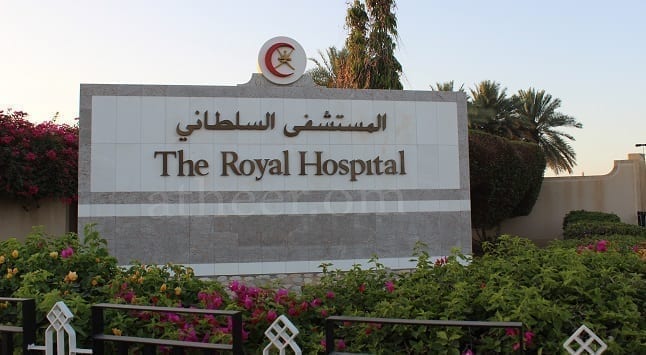

The psychiatry unit of the Royal Hospital has brought in an ‘Oman support network’ for the COVID-19 frontline health workers with the help of 15 clinical psychologists.
The biggest tertiary hospital in the Sultanate is playing a crucial role in the fight against the COVID-19 pandemic. There are more than 4,000 healthcare workers at the Royal Hospital and all of them can benefit from the network.
Dr Nawal Nasser al Mahiyajri, Head of Psychiatry Unit, Royal Hospital, explained, “Usually I take care of the Royal Hospital staff, but in this exceptional situation we thought of getting the extra support during the pandemic. Thankfully our colleagues volunteered to support our staff.”
The medical staff can approach the clinical psychologists through the phone as each volunteer has a specific telephone number during specific timings during the day time.
“It is highly confidential. They do not even have to give their name. They can ventilate their stress to the clinical psychologist who will listen to them and if they
need any other intervention, the psychologists will guide them on what to do next,” Dr Nawal said.
Unfortunately, Dr Nawal feels the stigma continues as people still feel fragile to talk about their psychological matters as they feel they might be considered as weak.
“Most of the calls continue to come to me because the staff know me at the hospital. We are now studying that factor also,” she noted.
The stress level of the medical staff varies. A study conducted at the Royal Hospital targeted as many healthcare workers as possible in Oman, both private and governmental health sectors. The study held in April for two weeks had responses from more than 500 healthcare workers – 38 per cent were doctors and 61 per cent were nurses.
“This study revealed about a quarter of this study sample has close contact with somebody who is a confirmed COVID-19 patient or suspected COVID-19 patient. Around one-third of the staff in the study experienced anxiety or sleep issues and insomnia.”
There are worries that they might infect themselves or their family members. Most of the participants were youngsters ranging in their 20s, 30s, and 40s so their worries were about who will take care of their kids at home because the nurseries and schools are closed.
As a result, there is now a formal committee under the Ministry of Health, which will be like a psychological intervention during any crisis.
“In our studies at the Royal Hospital as well as by our counterparts prove that there is a great need for psychological support. I would like to see each general hospital a unit of psychiatry not just for the medical staff but also for the patients.”
So what are the symptoms patients go through?
“I have seen levels of anxiety and mood problems including ‘obsessive-compulsive disorder’ in our patients at different age levels. There is no particular age group. Around the world the studies have explained an increase in anxiety, OCD, and ‘post-traumatic stress disorders’ as a result of the COVID-19 pandemic,” she said.
Dr Nawal added there were uncertainties and people were affected by the unknown. “But let us not look into it because there is a clear explanation on precaution - what we should do such as wearing the mask and cleaning hands frequently. Let us focus on the precautions. Let us not focus on the unclear part.”
Oman Observer is now on the WhatsApp channel. Click here



